Sienna is a powerful and important voice in the Los Angeles dance scene. She’s worked–and continues to work–as a dancer, teacher, assistant, movement coach, choreographer, and everything in between. JLo, The Masked Singer, Taylor Swift, Pharrell, and American Song Contest are just a few credits you might spot on her resume. Her work ethic and precision has earned her an honorable reputation, making her an asset to today’s working industry. She’s gracious enough to offer time sharing her knowledge with the upcoming generation of dancers at our studio, but today we get to learn all about what drives her and makes her tick!
Who is Sienna Lyons, according to Sienna Lyons?
I am a resilient, hard-working woman. I am driven. I am funny. I am passionate about my art and my work.
How did you find dance?
I always say I didn’t find dance; it found me. I started dancing, supposedly, before I could walk (according to my parents). So I’ve been in dance class since I was two. I didn’t have that moment of, ‘Aha! This is what I want to be.’ It’s just literally been in my life and I can’t imagine not having it in my life. I don’t think I chose it. It’s just like brushing my teeth for me. It’s a part of my day, a part of my life.
What keeps you connected to dance today?
I just love creating, literally creating new work. Like you would a baby. So that keeps me really intrigued. I’m always intrigued to see what comes out next or how it comes out because it’s usually very different than how I see it in my head–which sometimes can work with me or against me. But I enjoy that curiosity of how it’s going to turn out, so curiosity is what keeps me involved. Just the passion. I love being able to sit back and watch my work like a kaleidoscope, just watch it down the center, and that to me is really interesting and fascinating.
It can be easy for dancers to let dance become our entire identity. Is there anything outside of dance that you do for yourself?
I definitely find myself falling into that rabbit hole frequently. Dance is our work and it’s also our hobby. It’s what we love, so it is hard to get away, but it’s so necessary. I like to create days where I don’t even think about it, don’t do it, not even take class, just step away completely. I like to go to the beach, go on vacations or getaways to just get grounded and recalibrate my creativity and rest. I love going to music shows, like concerts (though I still kind of consider that staying in the dance world). I do like going to symphonies and orchestras and things like that. The Philharmonic is really therapeutic for me.
You’ve worked in so many aspects of our industry (dancer, teacher, choreographer, assistant choreographer). What role speaks to you the most?
I moved to LA to dance. That was my first goal. At a time in my life, that’s all I wanted to do. Even while I was getting all this assistant choreography work, choreography work, I was still really fixated on this world, until I was able to let it go. The opportunities or the experience had–they never really dwindled, but I made the choice after certain situations to be like, ‘I think I’m ready.’ So that was my main focus at one point and then I moved to assisting.
There’s something about working on a team that I really enjoy. I think it’s also really fun because we all have different experiences and artistic ways, artistic rituals and all that. So I find it fascinating to work on a team because we all kind of bring different thoughts, opportunities and options to the table which then creates a really cool jambalaya or stew of all of our creations in one which is really cool.
So I love working on a team, but I also love creating myself because then it is just what I see in my head and what I want to say. So I’d say in every department, there was a time where that was my favorite.
I do enjoy creating my voice right now. That’s what I enjoy doing, as the head choreographer, I enjoy creating. But I still, like I said, if I’m asked to assist the right people, I would do it in a heartbeat because I love that teamwork and support.
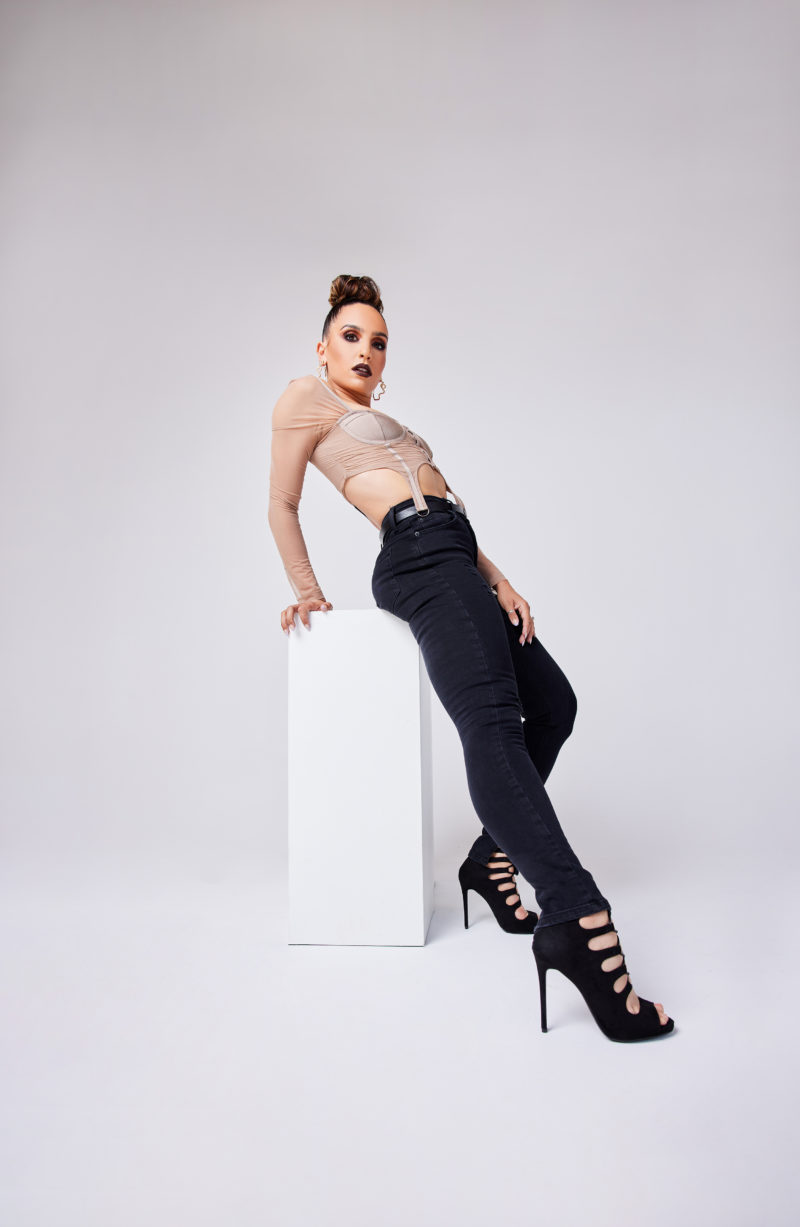
What is something dancers can expect to walk away from your class with?
I like to help train dancers. I also like to hold myself accountable as this dancer of having the whole pie chart filled equally, so I have an equal amount of performance, technique, cleanliness, with strength, with smoothness…I like to challenge all of my students to focus on all of those departments in your movement, because they are all so important. So my goal as a teacher is always to make sure that dancers can start to figure all those things out within themselves without me having to spoon-feed it to them. So my class can be…difficult, I’ve heard a few times. I expect you to be with me there.
If you walk away with anything in particular, I would love you to walk away not only with those things, but also a better understanding of music. I feel like dancers need to come to the terms that music (this is a personal preference) is your first love and dance is your reaction. Without music, there is no dance. So we have to really connect on a deep, deep, deep level. Even if you don’t know the song, you have to be able to take that time, dissect it really fast in your brain, hear all the different layers, find the heartbeat. Your job is to exude and then share in movement what the song is saying, whether it’s sound, whether it’s words, whether it’s story or all of that, that is your job as a mover. That to me is the connection of the two. So among everything, my main focus right now that I hope dancers can walk away with is understanding music more.
You’re well known for teaching and encouraging dancers to strengthen and stretch. Why is it important for dancers to be conditioning the body as much as they train in choreography?
Obviously when you’re young you have a quick bounce-back, you’re not sore, you can land on your knee caps from a 12-foot scaffolding piece and not feel anything at all. What you need to understand is, these things, even if you don’t feel them in the moment, they are all affecting you right in that moment and they’re going to affect your future. The sooner you start cross training, the sooner you start building that awareness of what muscles groups you use when you dance, and what muscle groups you don’t use when we dance.
I think there’s a burnout that happens with too much dance class as well. You’re going to start to take–I did this myself–four or five classes a day and you’re not seeing any results because you’re not giving yourself time to reflect, not giving your body time to rest, not giving your brain time to digest what the teacher just taught you–maybe things you need to work on that are bad habits. So it’s for me also the break of taking choreography classes.
You can only do so much if your body isn’t changing, strength-wise, stability-wise, mobility-wise. If that’s not changing, you’re not going to see much change in your movement.
What are some of your dreams?
I want to choreograph a movie. That’s a big goal of mine. I recently did television, which was a big goal; I did a whole series. It was a lot, but I guess that’s what you ask for in those moments. When I’m older I would love to travel the world and just eat all the food everywhere and experience culture. I want to also start creative producing and creative directing, so maybe jumping into something similar to dance, but a totally different ballgame. That’s been a recent shift in my eyes slightly to change my focus there. Very intrigued by that right now.
How can people support you?
I love constructive criticism. I think that’s the competitive dancer in me that grew up with that. I thrive off of criticism. That to me shows support and that you took time to share your thoughts and artists objectives, so I enjoy hearing or seeing other peoples’ perspectives. That’s a really cool thing. So I hold my friends near and dear that are able to do that for me. I trust them a lot.
You can support me by taking the advice that I give you and using it in other classes and letting me know how it worked for you. That to me, makes me feel really good and it makes me feel like I’m doing my due diligence. That makes me feel like I’m doing my work in this community which then makes me feel supported in my work.
That’s about it. I don’t need praise, I don’t need comments. I don’t need that. That’s all I care about.
You can take class from Sienna online on TMilly TV. Or join us when she teaches in-person at our LA studio!
Fast Facts and Favorites
- Favorite book: Big Magic
- Favorite movie: Mrs. Doubtfire
- Favorite TV show: Grace and Frankie
- Favorite artist: Janet Jackson
- Favorite restaurant: Pura Vida
- Favorite choreographer: Before my time, Bob Fosse. New age…I like Luther a lot.
TMilly TV Recommends:

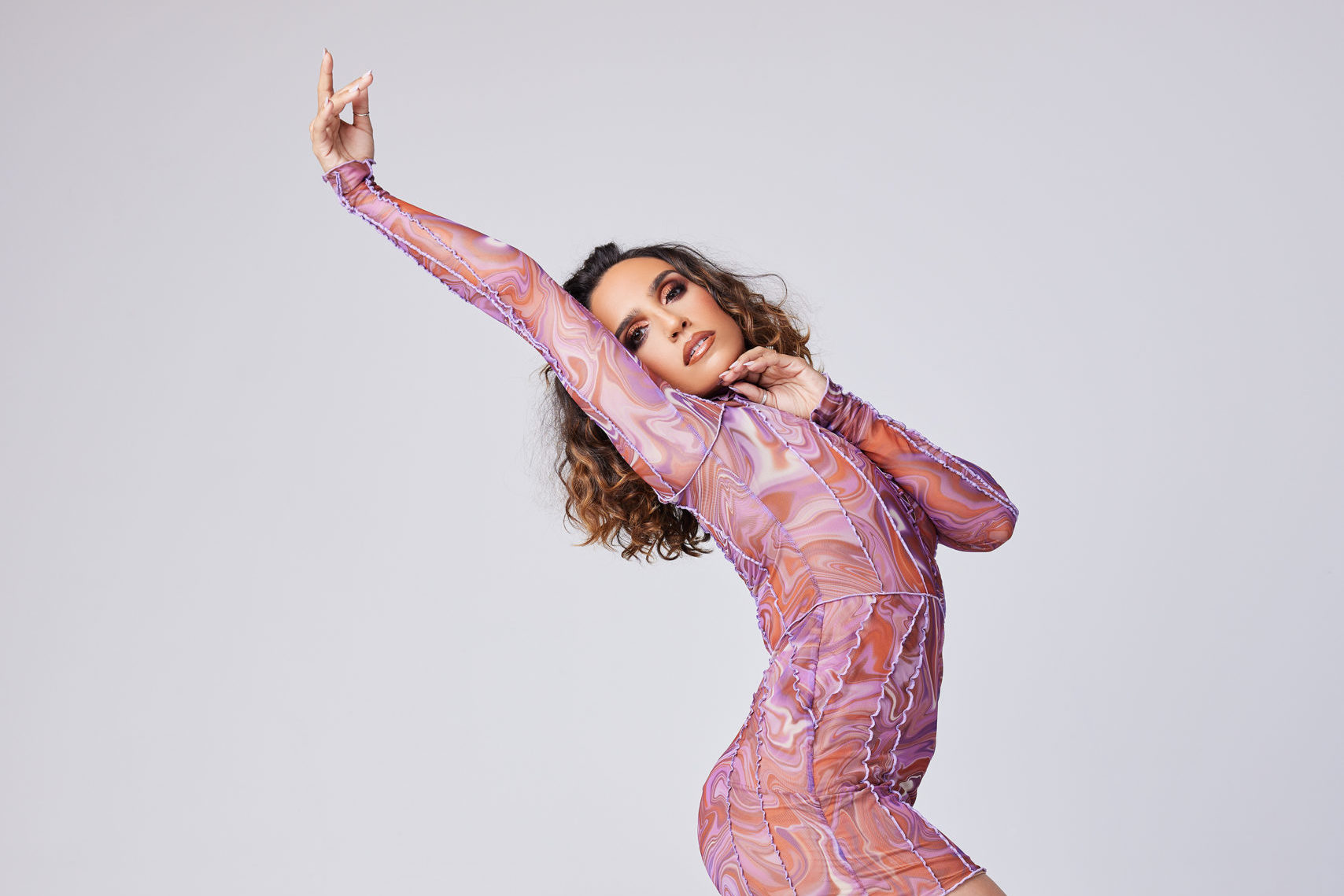
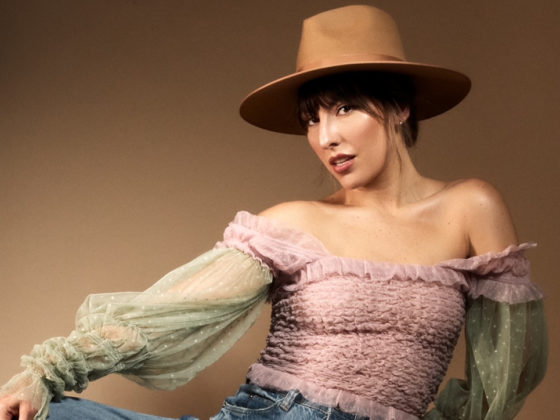

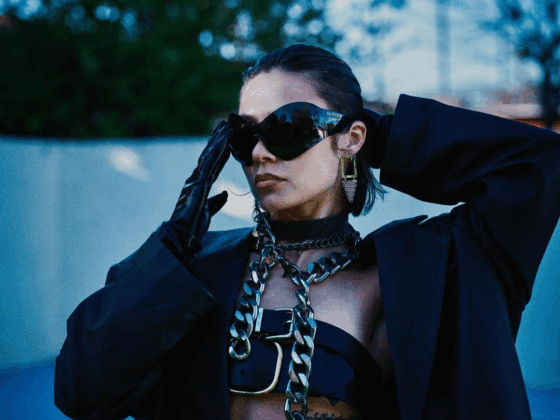
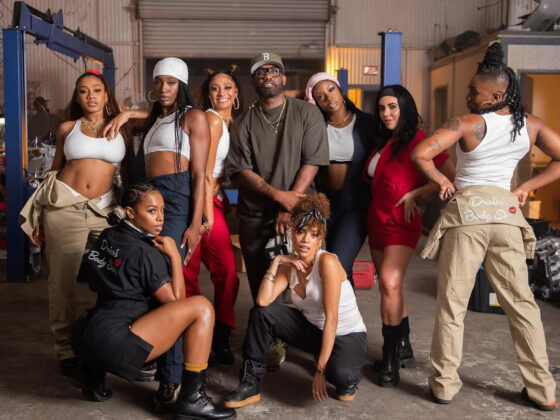
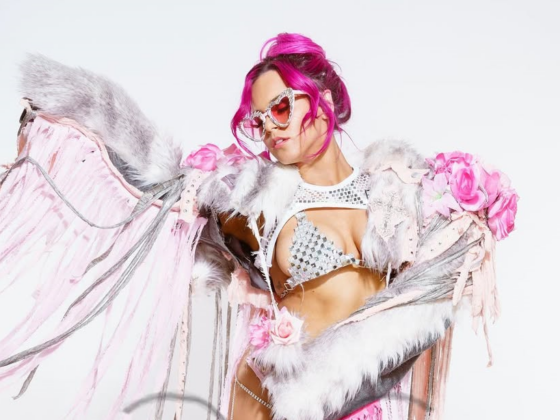
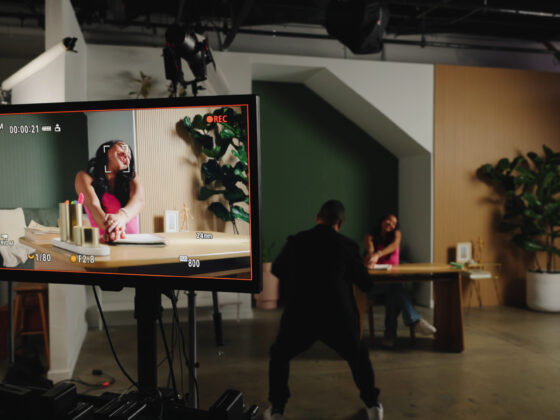
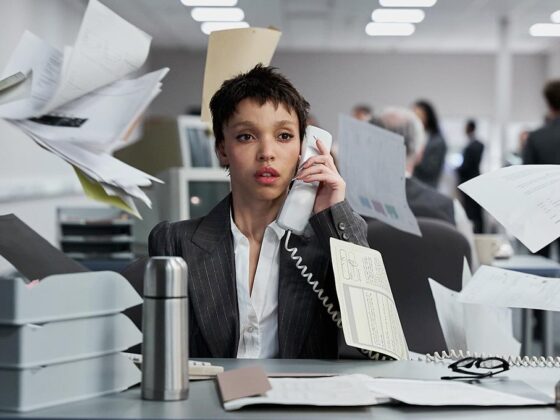
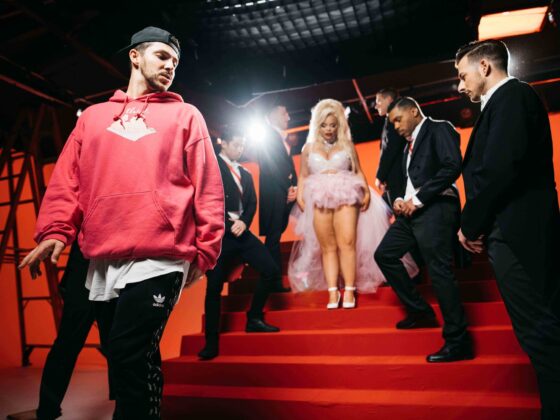
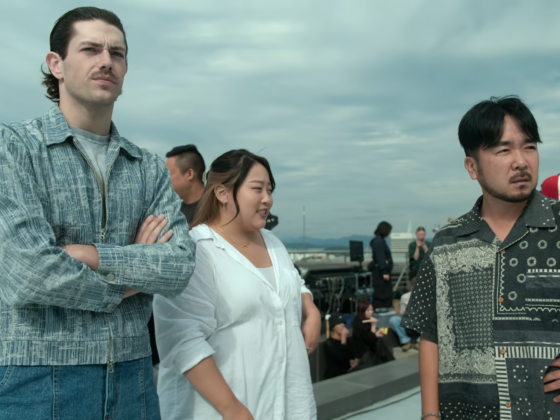
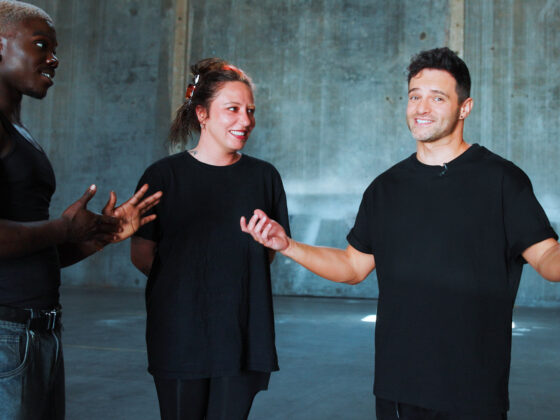
1 comment
Such great insight!